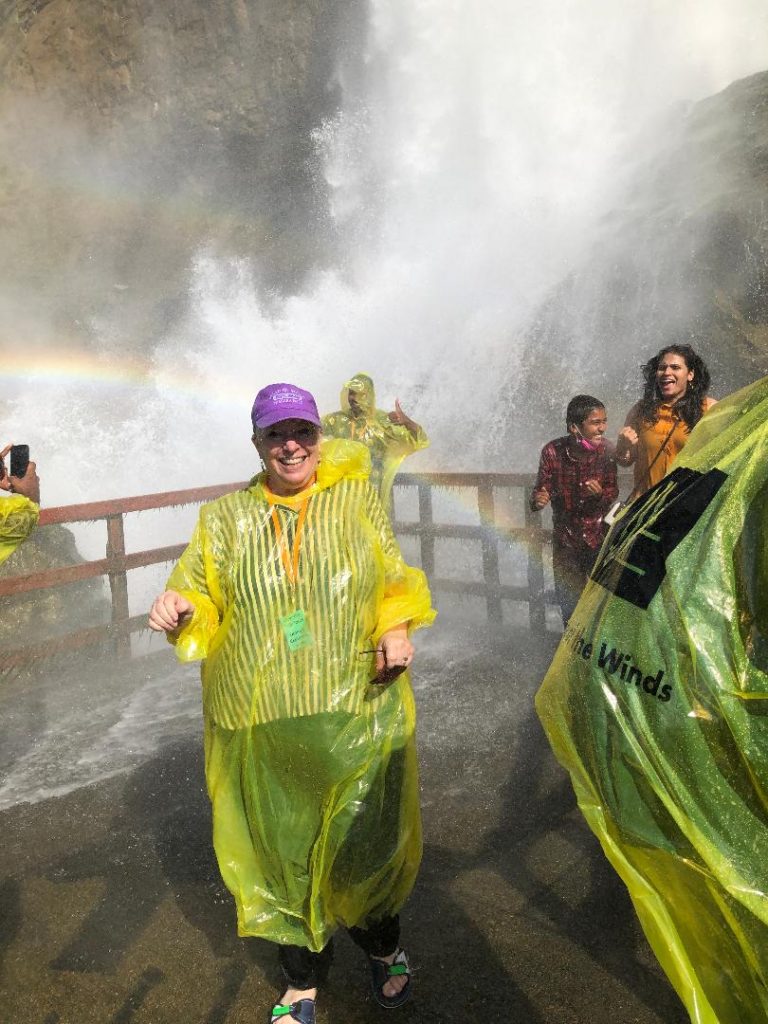8.31 Matt Bai in the Washington Post: Will voters a year from now focus on the economy? Yes. The state of the pandemic? Sure. Government spending? Entirely possible. Bungling the end of a 20-year war in Afghanistan — a withdrawal that most people supported? Very, very unlikely.
8.30 After 2,461 U.S. service members killed, 20,000 injured, 3,846 U.S. contractors killed, 66,000 Afghan military and police killed, 47,245 Afghan civilians killed, 51,191 Taliban and opposition fighters killed, and $2 trillion (Afghanistan and Iraq), the US military leaves Afghanistan, ending America’s longest war.
8.29 Al Roker, to critics who said he was too old to be reporting from the middle of Hurricane Ida: “I volunteered to come out here. This is what I do. I’ve done this for 40 years. … ‘Well, he’s too old to be doin’ this.’ Well, hey, guess what: Screw you! OK? And try to keep up! Keep up, OK? These young punks! I will come after them. I will drop them like a bag of dirt.”
8.29 Ed Asner dies at 91.
8.29 Jennifer Rubin in the Post: We need some sober reflection on the folly of overeager interventionism. We need to come to terms with the delusional feedback loop between civilian and military leaders. Instead we have a media and political culture that are not serious or attentive enough to grasp that dilemmas 20 years in the making have no good answer, just less terrible ones. Everything is reduced to a partisan question. (Is Biden in crisis? Is this a boost for Republicans?) The media, it seems, does not know how to cover a tragedy without viewing it through the lens of horse-race politics. It is so much easier to pronounce the exit a “disaster” than to consider if one’s advocacy over 20 years contributed to the groupthink that sent young men and women to die. Confronted with 13 dead Americans, the press is eager to demonstrate Biden missed the obvious, safe course. What that is, they do not explain. This week’s loss of life — both American and Afghan — is heartbreaking. With a mainstream media obsessed with stoking partisan squabbling, and Americans refusing to process the consequences of their own choices, it does make one pessimistic about self-government.
8.29 Robert Kagan in The Washington Post: Could things have gone differently in Afghanistan? Possibly, although that seems unlikely given the proclivities of all the parties involved. Successive U.S. administrations believed the likely price of lasting success in Afghanistan was higher than the American people wanted to pay, especially as the fear and anger after 9/11 faded. But the price of withdrawal was also too high. Under the circumstances, it was not surprising that successive presidents chose the route they did. And though there can be much second-guessing about both strategy and tactics, this was not one of those cases where the answer was obvious and only ideologues could not see it. So why the brutal recriminations? Why does every American setback have to be a morality tale, a search for scapegoats and an indictment of American foreign policy in general? The United States intervened in Afghanistan for perfectly good and understandable reasons after 9/11 and then did not know how to extricate itself with an acceptable outcome. Why has this been treated by so many as a tale of sin and hubris? Why has the “war on terror” come to be viewed as a symptom and for some the source of much of America’s troubles today? In fact, the “war on terror” has been successful — astoundingly so. If you had told anyone after 9/11 that there would not be another major attack on the U.S. homeland for 20 years, few would have believed it possible.
8.27 Yankees win 13th in a row.
8.26 Buffalo Day Four: Civil War Monument


8.25 Buffalo Day Three: Buffalo Zoo, Theodore Roosevelt Inauguration Site, Canalside





8.24 Buffalo Day Two: Niagara Falls–Horseshoe Falls, Whirlpool State Park, Cave of the Winds







8.24 Charlie Watts dies at 80
8.23 Buffalo Day One


8.21 Jo Brill for dinner
8.20 Mike Richards Resigns As Host Of Jeopardy
8.20 UAlbany orientation with Shawn
8.19 Paul Krugman in the Times: So how do you feel about anti-vaxxers and anti-maskers? I’m angry about their antics, even though I’m able to work from home and don’t have school-age children. And I suspect that many Americans share that anger. The question is whether this entirely justified anger — call it the rage of the responsible — will have a political impact, whether leaders will stand up for the interests of Americans who are trying to do the right thing but whose lives are being disrupted and endangered by those who aren’t. To say what should be obvious, getting vaccinated and wearing a mask in public spaces aren’t “personal choices.” When you reject your shots or refuse to mask up, you’re increasing my risk of catching a potentially deadly or disabling disease, and also helping to perpetuate the social and economic costs of the pandemic. In a very real sense, the irresponsible minority is depriving the rest of us of life, liberty and the pursuit of happiness.
8.16 Kabul falls. Biden: “I am deeply saddened by the facts we now face. But I do not regret my decision to end America’s war fighting in Afghanistan and maintain a laser-focus on our counterterrorism missions there and in other parts of the world.”
8.14 In his first major league start, Tyler Gilbert of the Diamondbacks no-hits the Giants, winning 7-0. It was the eighth no hitter of the season, a record.
8.13 Dinner with Tom Topousis in New Paltz.
8.13 Nanci Griffith dies at 68.
8.12 Katherine Miller in BuzzFeed: Increasingly, it feels like politics ping-pongs between the courts and executive authority, with a level of performance and expectation management in between, and very little in the way of legislative recourse. Performance is always part of politics, even if you have a high-functioning legislative body. The overall endeavor involves a lot of signaling and modeling; there is meaning in the public presentation of competence or morality, even if the downstream effect can be unpredictable and nonlinear. When performance and reality get out of line, though, it can be hard to maintain basic plans (for instance: that this set of vaccines is good).
8.11 Sicily bore the brunt of Europe’s hottest day ever. Thanks to an anticyclone named Lucifer, temperatures rose to nearly 120°F (48.8°C), just surpassing a heat spell in Greece in 1977.
8.10 Rep. Madison Cawthorn tweets: “1984 is a great fiction novel to read but it seems like it is becoming the reality we are currently living under more and more each day.”
8.10 Gov. Cuomo resigns.
8.9 Yankees beat Royals 8-6 in 11 innings. SI: Monday’s game between the Yankees and the Royals was a weird, delightful, wide-ranging spectacle. It was the first time in MLB that both teams had scored in the seventh, eighth, ninth, 10th and 11th innings of a game. The Yankees became one of just two teams in history to blow four saves in one game and became the only team to blow four saves in one game and still win. This means that when they escaped, 8–6, they also became the first team to experience five save opportunities in one game.
8.9 HuffPo: A new United Nations report reaffirms what world governments have known and failed to deal with for decades: that climate change is our fault, is already causing devastation around the globe and will continue to get worse. How much worse is entirely up to us. The assessment from the U.N.’s Intergovernmental Panel on Climate Change (IPCC) is an up-to-date scientific understanding of planetary warming, as well as its current and future impacts. The international consortium of researchers left no room for debate over the cause of the global crisis. “It is unequivocal that human influence has warmed the atmosphere, ocean and land,” reads a summary for policymakers. “Widespread and rapid changes in the atmosphere, ocean, cryosphere and biosphere have occurred.” U.N. Secretary General António Guterres called the findings “a code red for humanity.” “The alarm bells are deafening, and the evidence is irrefutable: Greenhouse gas emissions from fossil fuel burning and deforestation are choking our planet and putting billions of people at immediate risk,” he said in a statement.
8.9 Brittany Commisso goes public; Melissa DeRosa quits

8.6 Breakfast with Steve Silverman at Common Grounds

8.2 AG Tish James finds that Governor Cuomo committed sexual harassment and abuse. A key section: While the many former and current employees of the Executive Chamber we interviewed described a range of experiences working in the Executive Chamber, many—particularly junior staff members—consistently described a toxic culture and “abusive environment” within the Executive Chamber. One former staff member felt that crying at one’s desk was common and normal within the office, while another felt that supervisors went out of their way to “make people feel stupid.” Another former staff member noted that there was always an “element of fear,” and people were always “looking behind their backs.” Witnesses also described an environment in which supervisors would “blow mistakes out of proportion,” such that staff members faced constant fear and anxiety. Two former staff members compared the dynamics of
the Executive Office to an abusive relationship, with one noting that staff members could face intense criticism and then make an “amazing” achievement, which seemingly then enabled staff members to face the next cycle of mistreatment. Yet another staff member described the Executive Chamber as a mix between the West Wing and The Devil Wears Prada, noting that the Governor’s senior staff consists of “big personalities” who are “comfortable using power” and who maintain a “culture of fear and intimidation” in the Executive Chamber. One former senior staff member noted in a text exchange after some of the sexual harassment allegations became public that “[h]opefully when this is all done people will realize the culture—even outside the sexual harassment stuff—is not something you can get away with … you can’t berate and terrify people 24/7.”
